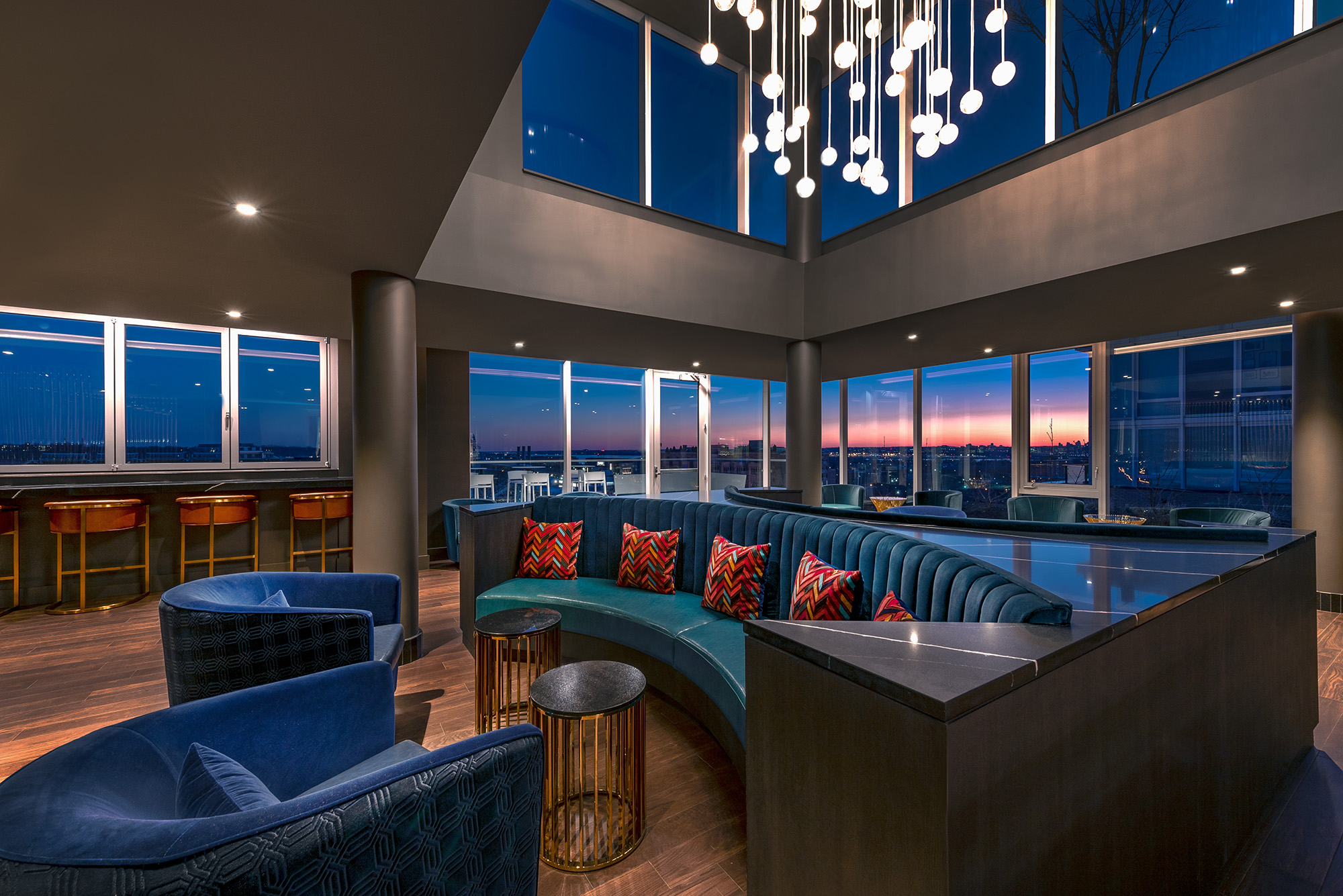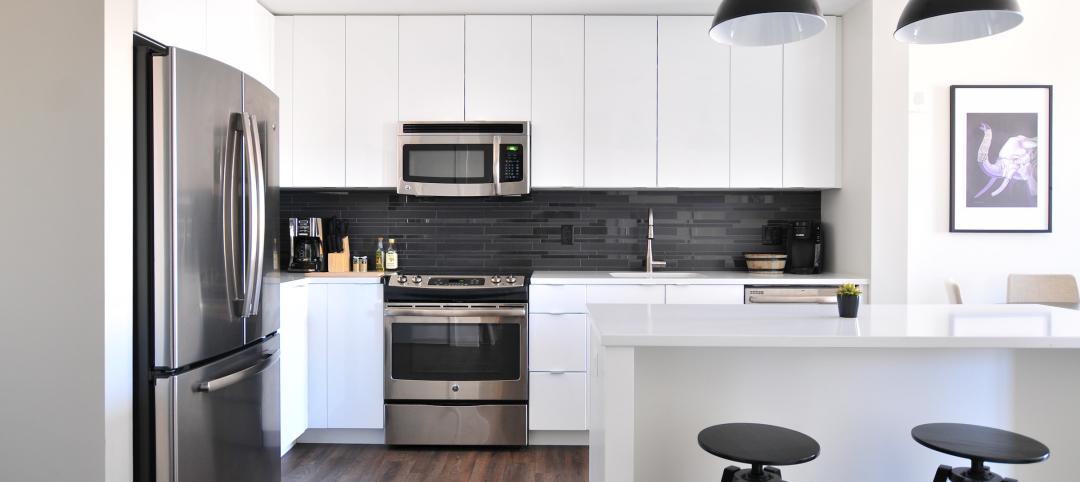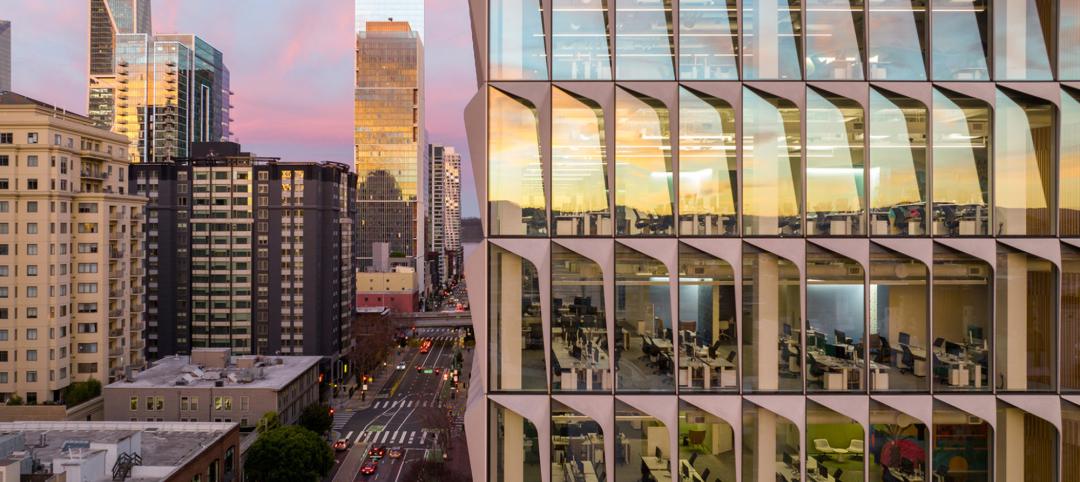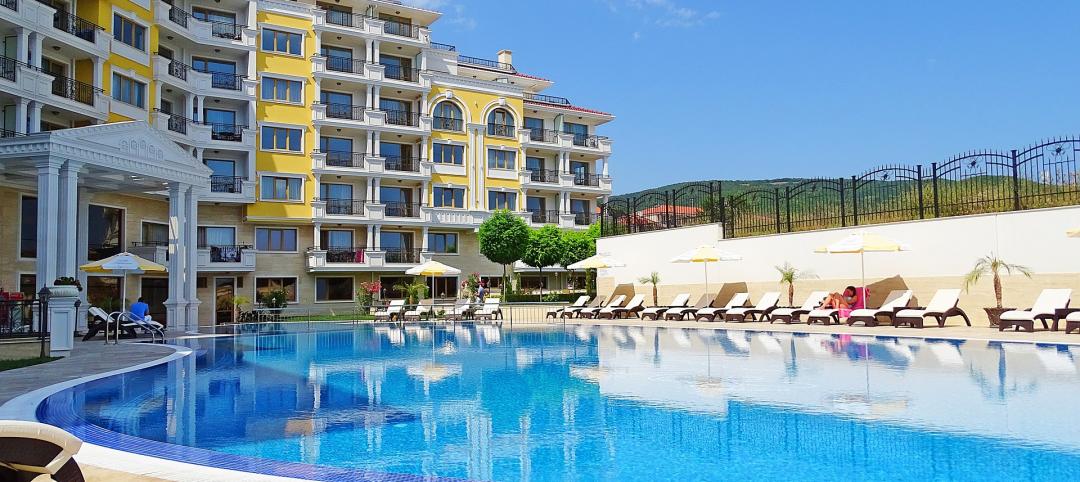The realm of residential development is consistently evolving in response to the shifting needs in the market. As priorities realign and demographic landscapes transform, multifamily designers and developers find themselves in a continuous state of adaptation to resonate with residents in an increasingly competitive arena.
At V Starr, as collaborative design partners to developers across the country, we've observed particularly pronounced shifts regarding tenant lifestyles and thus, their living needs.
What are these pivotal multifamily trends, and how can we effectively respond to them to craft spaces that not only meet but exceed the expectations of today's discerning residents?
Top 5 Multifamily Trends in 2024
1. Health & Wellness
Wellness holds steady as a high priority for residents in multifamily properties, and as such, a standard gym no longer meets their expectations. Today, multifamily dwellers are not impressed with standard fitness facilities but rather yearn for provisions catered to holistic wellness practices. We’re seeing developers and their partners responding to the call with everything from cryotherapy pods to full luxury spas, and even atriums and green spaces to help ground residents and stay connected with nature in major cities.
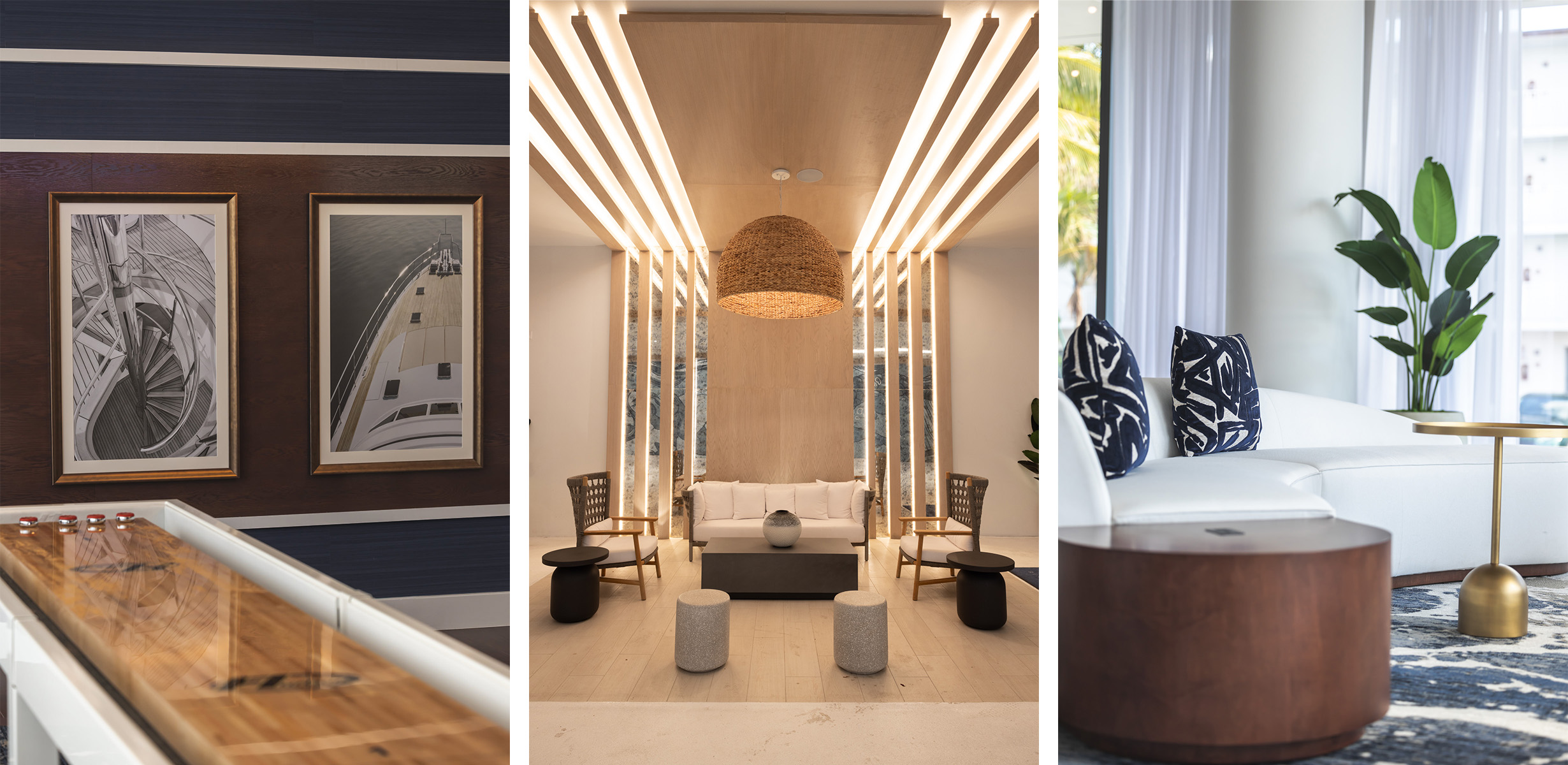
When it comes to the design of these spaces, we’re minding wellness in our material selection as well. In sourcing natural and non-toxic materials we aim to meet end users’ standards with selections that are not only aesthetically sound but also more environmentally friendly. Further, the inclusion of biophilic elements is known to contribute positively to overall mental well-being by fostering a sense of calm.
2. Diversification of Lifestyle Amenities
Outside of health and wellness, amenities are evolving to allocate dedicated spaces for leisure activities that cannot necessarily take place in small apartments or condos. Podcast studios, VR rooms, and even indoor pickleball courts are just a few examples of new accommodations now being integrated into modern developments.
Community is another important factor for residents as they all seek organic connections with neighbors and guests beyond the confines of their units. From membership pool clubs to rooftop clubs and full game room lounges, the rise of social hospitality spaces attests to the growing popularity of initiatives aimed at nurturing a vibrant community spirit among residents.
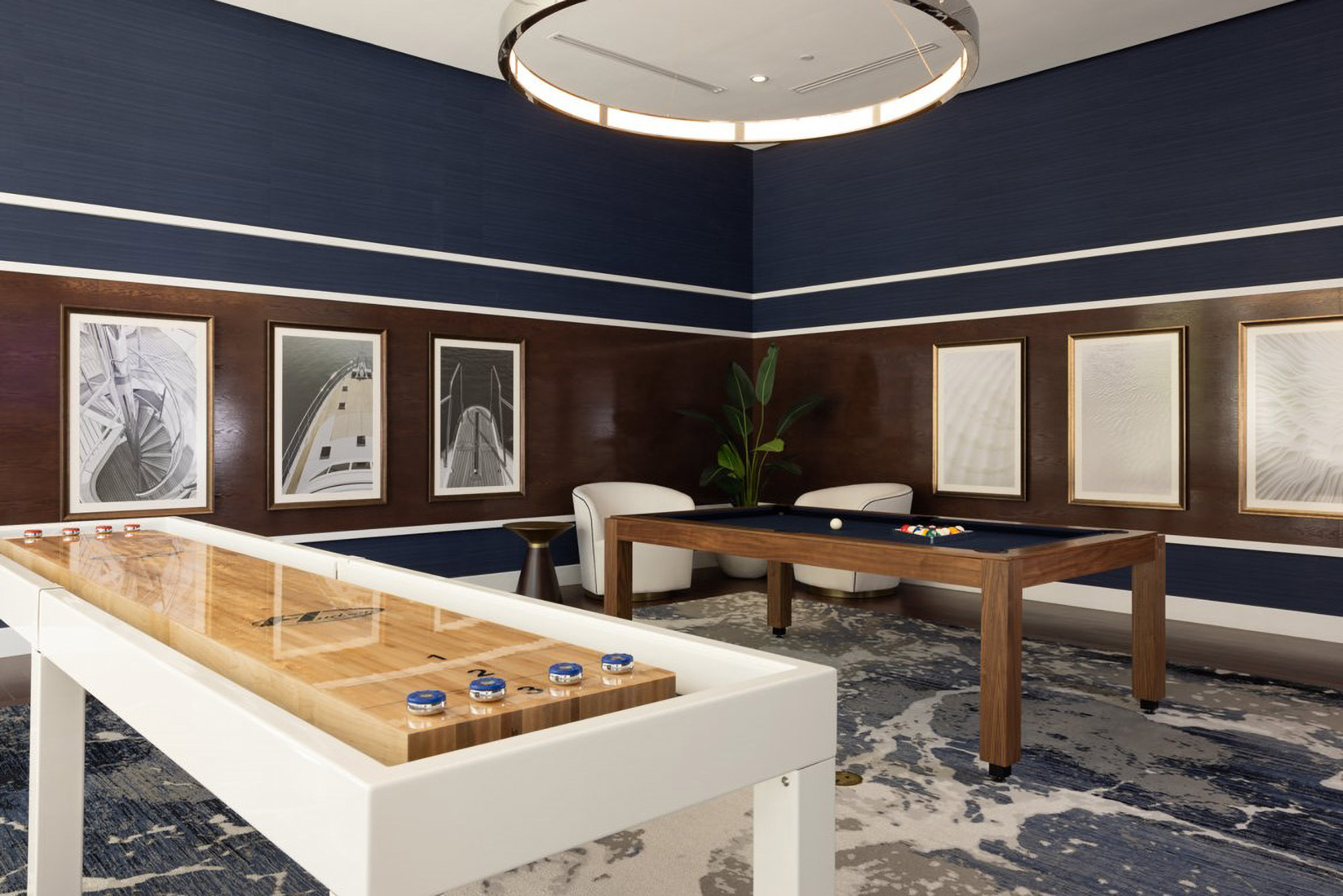
Mirroring the convenience offered at hotels and short-stays, grab-and-go drinks and food marts are another growingly common amenity that helps meet tenants’ needs with convenience.
3. Flexible, Multipurpose Spaces
With hybrid work holding steady across industries, coworking spaces persist as a prevalent amenity in multifamily buildings. Ranging from well-equipped conference rooms to individual workspaces, thoughtfully designed spaces enhance productivity and also offer an environment for remote employees to draw motivation outside of their living quarters. As hybrid work endures, these dedicated workspaces have become a key draw for residents.
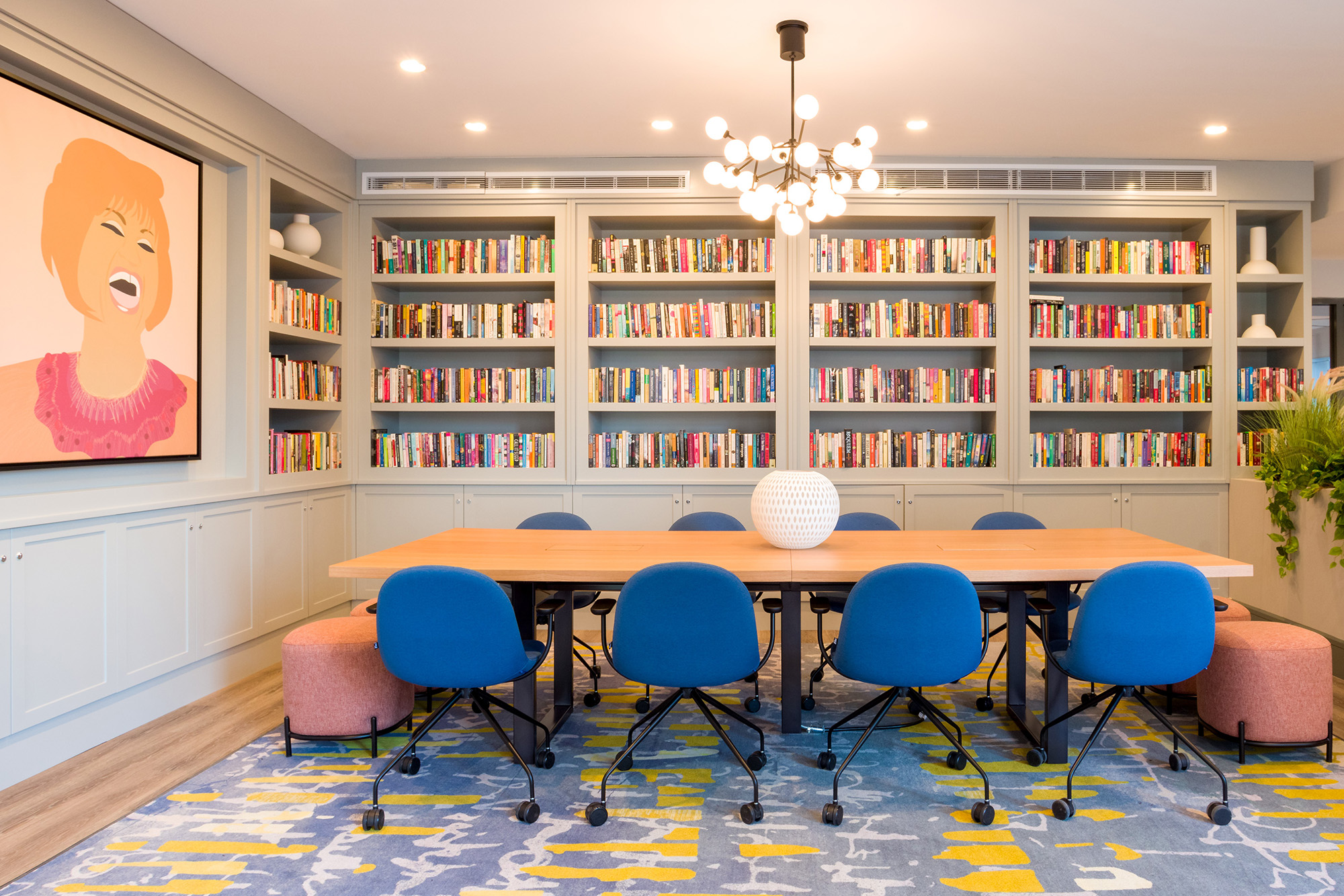
Simultaneously, increased demand for home office spaces within residences has created a need for versatile spaces. This shift not only influences the dimensions of apartments but also redefines the unit mix by challenging the conventional notion that two bedrooms are exclusively designated for families.
Instead, these spaces are now envisioned to serve dual purposes that can accommodate working from home. With this, too, comes the need for flexible storage solutions for work-related items that are out of sight and mind when guests visit but are easily accessible and convenient when needed.
4. Catering to Aging Renter Demographics
As Boomers look to downsize and explore new cities, they seek out the same amenities as Millennials, but with a more refined taste that reflects the comforts of home that they’re used to. Developers and designers are meeting their expectations with thoughtfully curated spaces that feel warm, inviting and luxurious.
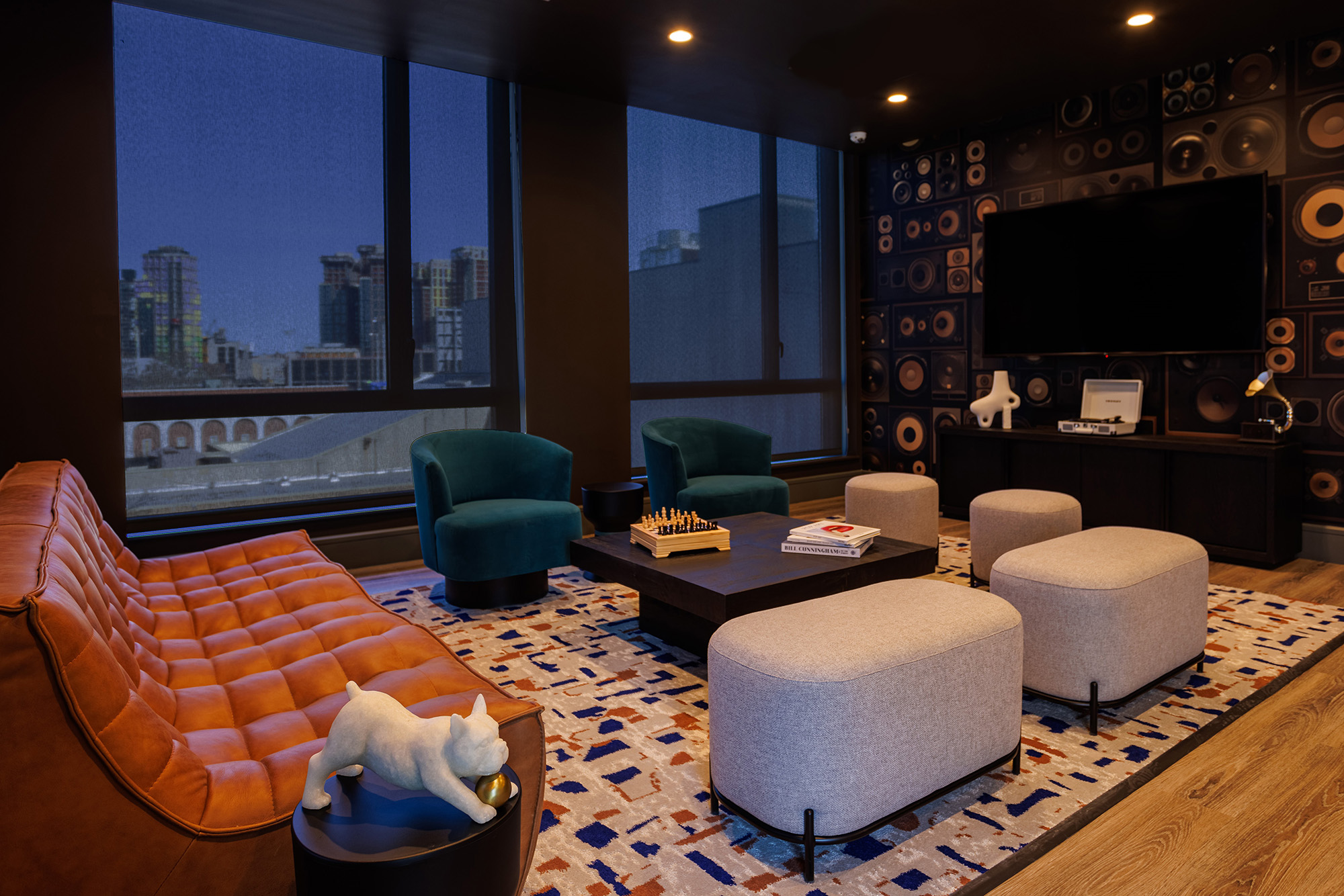
Through tactile materials, soothing color palettes and curated art packages, lounges, lobbies and amenity spaces are now approached as seamless extensions of the residents’ apartments.
5. Building Neighborhoods to Thrive
Underlining the increased focus on community, multifamily designers are embracing a holistic, mixed-use approach that considers not just residential, commercial, and retail but also food and beverage, entertainment, and performing arts, plus plenty of greenspaces. Sound rooms and stages and even hidden speakeasies are just a few of the ways property groups are accounting for the varied interests of their residents, offering a close-knit hub to meet and connect right in their communities.
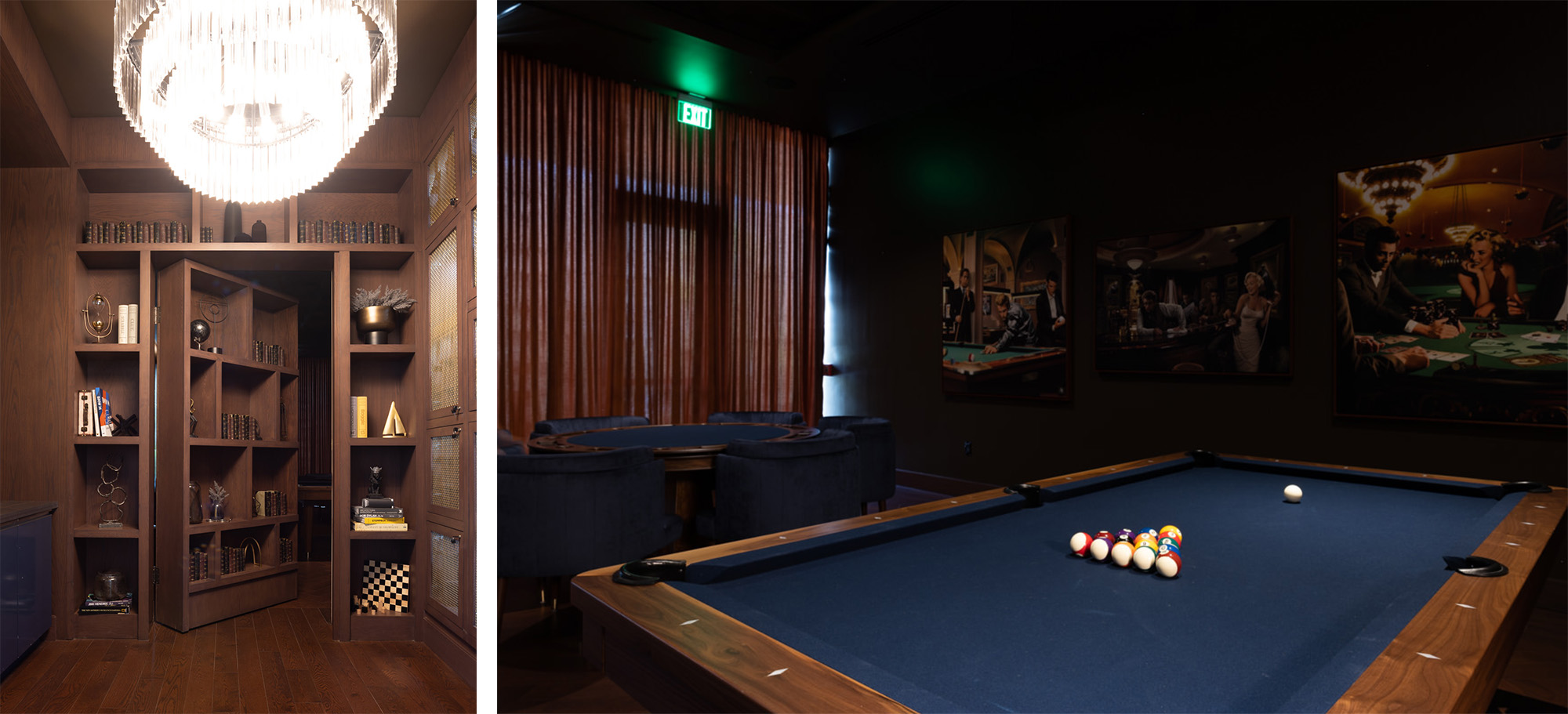
In essence, our commitment lies in crafting enduring spaces. As the dynamics and preferences of multifamily developments transform, designers and our partners aim to meet these shifts in the market with thoughtful considerations that evolve with time. While we work to accommodate each of these shifts into our projects, we too consider how they will evolve by offering flexibility in layout and function to consistently bolster vibrant and thriving communities.
Related Stories
Multifamily Housing | Mar 24, 2023
Washington state House passes bill banning single-family zoning
The Washington state House of Representatives recently passed a bill that would legalize duplexes or fourplexes in almost every neighborhood of every city in the state.
Multifamily Housing | Mar 24, 2023
Momentum building for green retrofits in New York City co-ops, condos
Many New York City co-op and condo boards had been resistant to the idea of approving green retrofits and energy-efficiency upgrades, but that reluctance might be in retreat.
Legislation | Mar 24, 2023
New York lawmakers set sights on unsafe lithium-ion batteries used in electric bikes and scooters
Lawmakers in New York City and statewide have moved to quell the growing number of fires caused by lithium-ion batteries used in electric bikes and scooters.
Multifamily Housing | Mar 24, 2023
Multifamily developers offering new car-free projects in car-centric cities
Cities in the South and Southwest have eased zoning rules with parking space mandates in recent years to allow developers to build new housing with less parking.
Multifamily Housing | Mar 24, 2023
Coastal multifamily developers, owners expect huge jump in insurance costs
In Texas and Florida, where Hurricane Ian caused $50 billion in damage last year, insurance costs are nearly 50% higher than in 2022.
Multifamily Housing | Mar 24, 2023
Average size of new apartments dropped sharply in 2022
The average size of new apartments in 2022 dropped sharply in 2022, as tracked by RentCafe. Across the U.S., the average new apartment size was 887 sf, down 30 sf from 2021, which was the largest year-over-year decrease.
Geothermal Technology | Mar 22, 2023
Lendlease secures grants for New York’s largest geothermal residential building
Lendlease and joint venture partner Aware Super, one of Australia’s largest superannuation funds, have acquired $4 million in support from the New York State Energy Research and Development Authority to build a geoexchange system at 1 Java Street in Brooklyn. Once completed, the all-electric property will be the largest residential project in New York State to use a geothermal heat exchange system.
Urban Planning | Mar 16, 2023
Three interconnected solutions for 'saving' urban centers
Gensler Co-CEO Andy Cohen explores how the global pandemic affected city life, and gives three solutions for revitalizing these urban centers.
Building Tech | Mar 14, 2023
Reaping the benefits of offsite construction, with ICC's Ryan Colker
Ryan Colker, VP of Innovation at the International Code Council, discusses how municipal regulations and inspections are keeping up with the expansion of off-site manufacturing for commercial construction. Colker speaks with BD+C's John Caulfield.
Multifamily Housing | Mar 14, 2023
Multifamily housing rent rates remain flat in February 2023
Multifamily housing asking rents remained the same for a second straight month in February 2023, at a national average rate of $1,702, according to the new National Multifamily Report from Yardi Matrix. As the economy continues to adjust in the post-pandemic period, year-over-year growth continued its ongoing decline.



